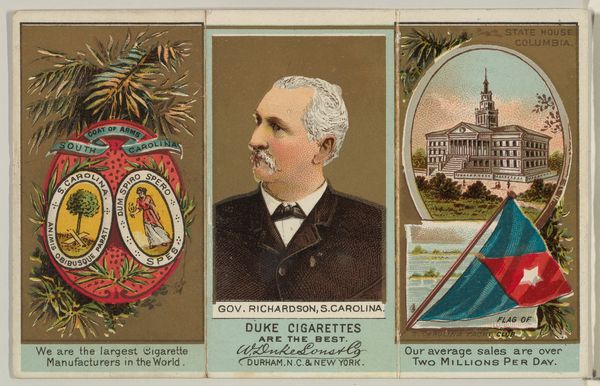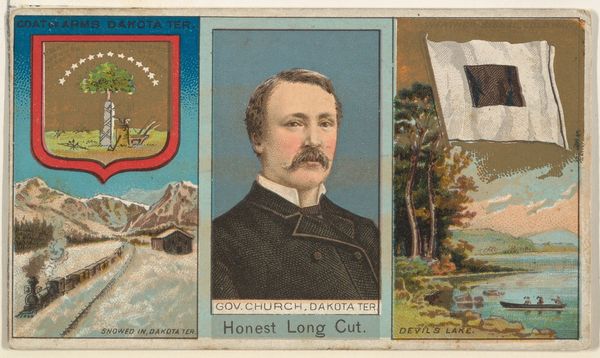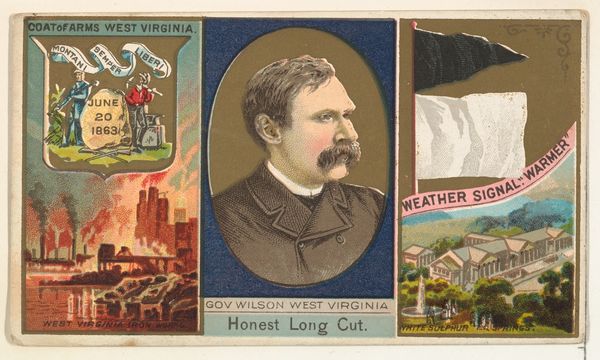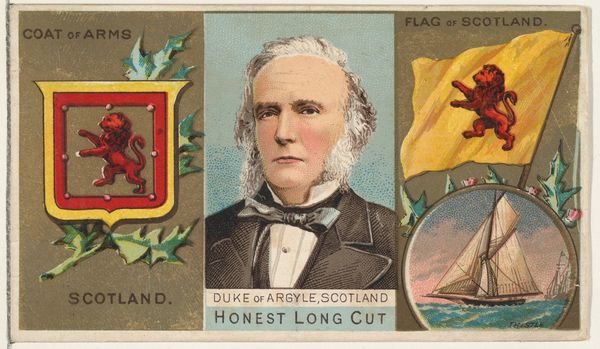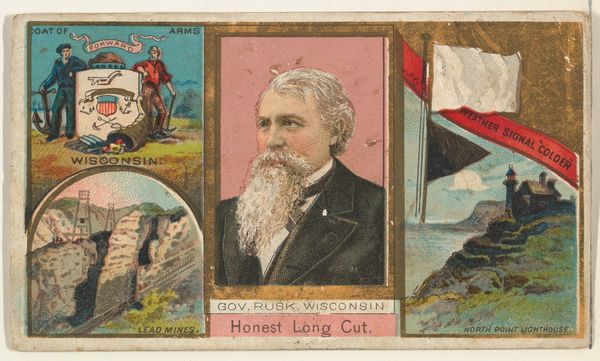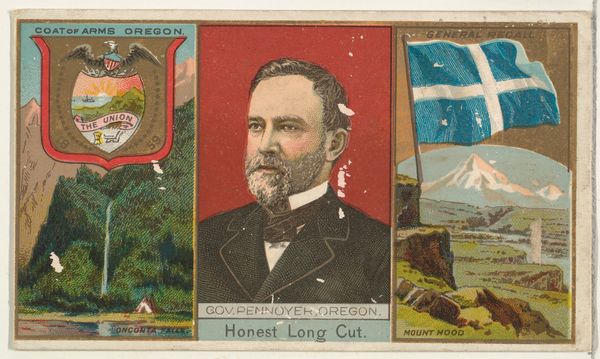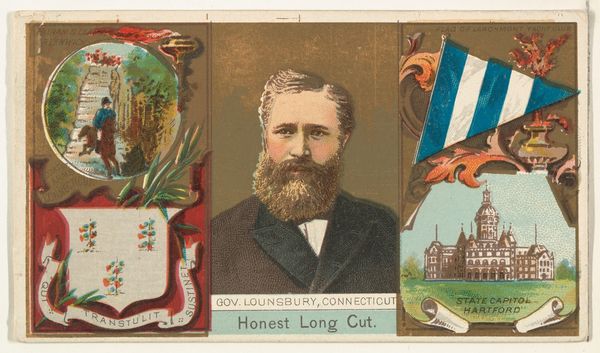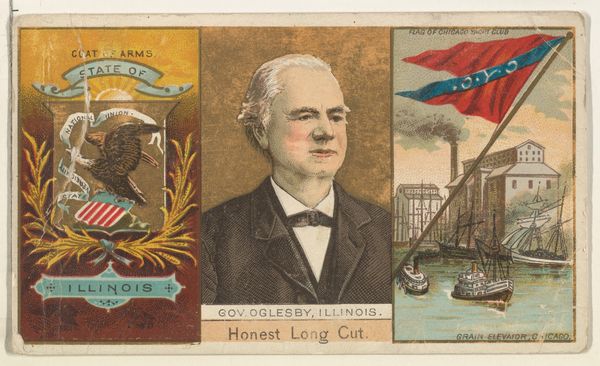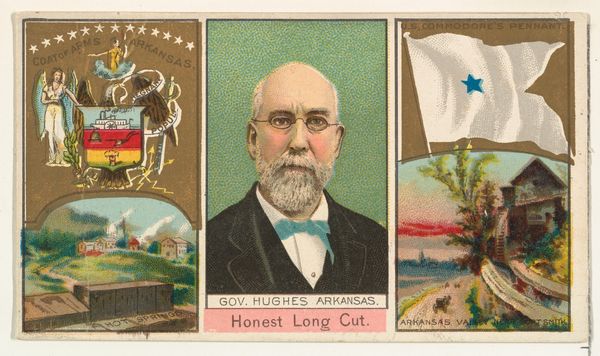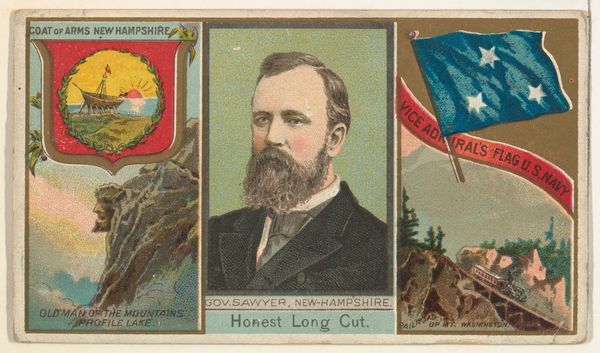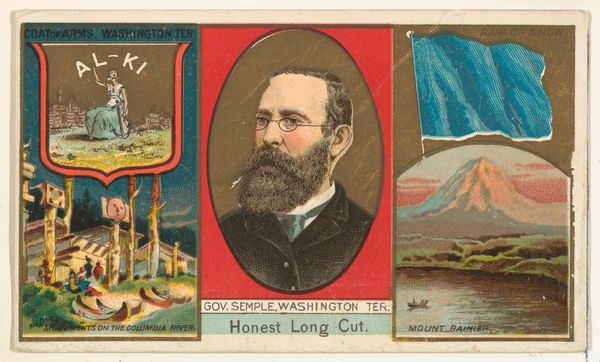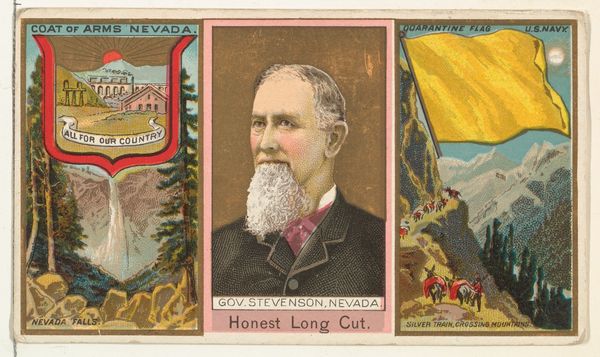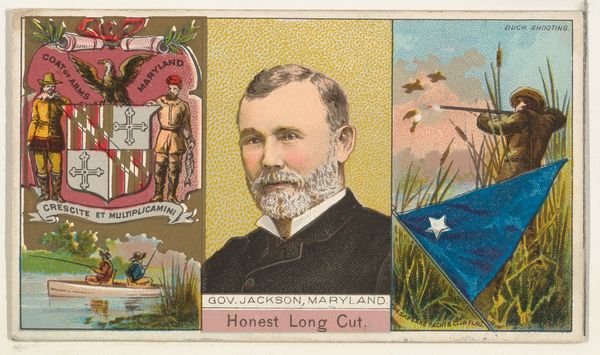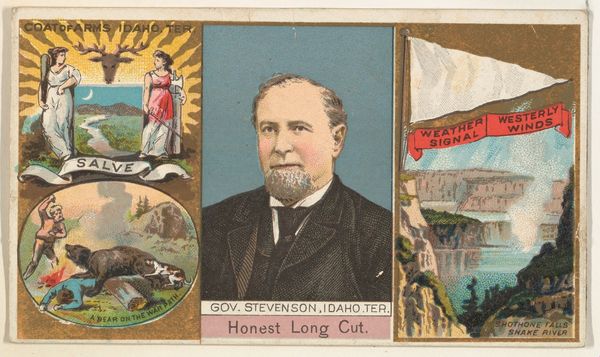
Governor Richardson, South Carolina, from "Governors, Arms, Etc." series (N133-1), issued by Duke Sons & Co. 1885 - 1892
0:00
0:00
drawing, coloured-pencil, print, architecture
#
portrait
#
drawing
#
coloured-pencil
# print
#
coloured pencil
#
genre-painting
#
history-painting
#
architecture
#
profile
#
arm
Dimensions: Sheet: 2 9/16 × 4 5/16 in. (6.5 × 11 cm)
Copyright: Public Domain
Curator: Here we have "Governor Richardson, South Carolina," part of the "Governors, Arms, Etc." series, produced by W. Duke, Sons & Co. between 1885 and 1892. It combines drawing and print techniques. What’s your initial response? Editor: The format is interesting; almost like a triptych on a tiny scale. There is a somewhat disparate relationship between each pane; they don’t quite cohere into a singular composition. Curator: Indeed. The piece compartmentalizes symbols of South Carolina around a portrait of the Governor. Let’s start with the composition itself. Notice the use of the horizontal format, common for trade cards of the era. The composition follows a simple tripartite structure. The textures, created through colored pencil and print, give it a tactile quality. Editor: And it's rich with symbolism, isn’t it? Each element carefully chosen. The Coat of Arms, the Governor himself, and then the State House – architecture being a potent signifier of power and permanence. The flag even makes an appearance, speaking volumes about identity. Curator: Exactly. Let's focus on the figure of Governor Richardson. The artist opts for a profile view, imbuing him with a sense of stoicism, a reference to classical portraiture. Observe how the use of shading and highlights, despite the simplicity of the medium, sculpt his face, lending a gravitas befitting his office. Editor: It's fascinating how they distill the essence of the man and the state into these emblems. The name "Honest Long Cut" below his image clearly has connotations I can’t fully parse. I find it interesting to consider this from a psychological perspective; What do these symbols evoke in the viewer and what assumptions were at play regarding South Carolinian identity during that time? Curator: A pointed question, and key to understanding the impact of such images. In this work, the blend of meticulous execution and emblematic language is well-composed formally. It evokes a desire to legitimize both the Governor’s status and the narrative of South Carolina. Editor: It really pushes us to examine the interplay of identity and power – then and now – embedded in symbols and representation.
Comments
No comments
Be the first to comment and join the conversation on the ultimate creative platform.
